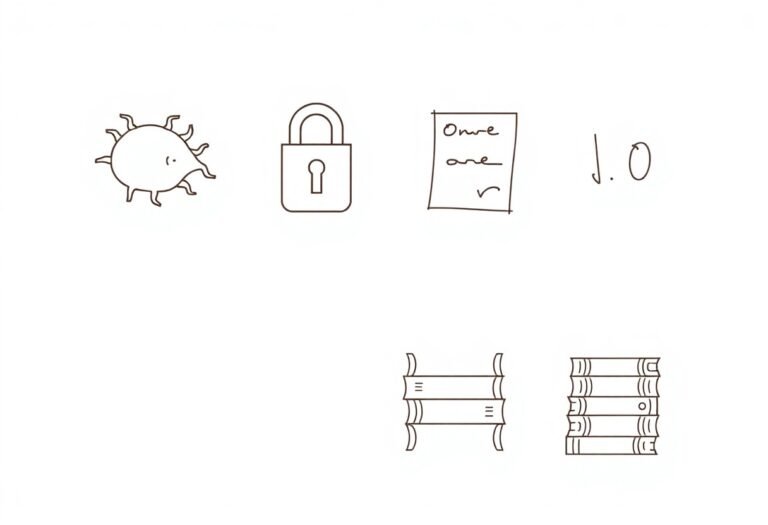Cognitive Behavioural Therapy (CBT) for OCD
It’s crucial to understand that Cognitive Behavioural Therapy (CBT) is a highly effective treatment for Obsessive-Compulsive Disorder (OCD). This therapeutic approach helps you identify and challenge the distorted thinking patterns contributing to your obsessive thoughts and compulsive behaviours. By actively engaging in exposure and response prevention, you can gradually learn to manage your anxiety and reduce the impact of OCD on your daily life. Embracing CBT may lead to significant improvements in your mental health and overall quality of life.
Key Takeaways:
- Cognitive Behavioural Therapy (CBT) is an effective treatment for Obsessive-Compulsive Disorder (OCD), focusing on altering patterns of thought and behaviour.
- CBT for OCD often involves exposure and response prevention (ERP), where individuals gradually confront their fears without engaging in compulsive behaviours.
- The therapy encourages individuals to challenge and reframe distorted thoughts that contribute to their obsessions and compulsions.
- CBT typically requires active participation; patients are often assigned homework to practise techniques outside of therapy sessions.
- Results may vary, and while many individuals experience significant improvement, ongoing support and practice may be necessary to maintain progress.
The Neurobiology of OCD: Understanding the Brain’s Misfiring
Understanding the neurobiology of Obsessive-Compulsive Disorder (OCD) can offer valuable insights into its mechanisms. Individuals with OCD often experience altered brain activity within specific areas that regulate fear and anxiety. This misfiring can lead to persistent intrusive thoughts and compulsive behaviours, which form the hallmark of the disorder. Identifying the neural bases of these symptoms is necessary for developing effective treatments and therapies.
Neural Circuits Involved in OCD
Several neural circuits are implicated in OCD, most notably the cortico-striato-thalamo-cortical (CSTC) pathway. This circuit connects the frontal cortex, basal ganglia, and thalamus, and is responsible for regulating decision-making and behaviour. Dysfunction within this circuitry can result in significant disruptions in how you process information and manage anxiety, thereby exacerbating OCD symptoms.
The Role of Neurotransmitters
Neurotransmitters play a vital role in your brain’s regulation of emotions and behaviours, particularly in OCD. Low levels of serotonin are commonly found in those with the disorder, contributing to symptoms such as anxiety and intrusive thoughts. In addition to serotonin, other neurotransmitters such as dopamine and glutamate have also been linked to the condition, influencing your mood and how you react to stressors in your environment.
The involvement of serotonin in OCD is particularly noteworthy, as it suggests why selective serotonin reuptake inhibitors (SSRIs) can be effective in treatment. These medications aim to increase serotonin levels, helping to alleviate the anxiety that fuels compulsive behaviours. Beyond serotonin, dysregulation of dopamine pathways may further complicate the disorder, affecting reward and reinforcement processes in your brain. Understanding these neurotransmitter interactions can enhance therapeutic approaches, making them more personalised and effective for your specific needs.

CBT’s Mechanisms: How It Hunts Down Obsessions
Cognitive Behavioural Therapy (CBT) targets the underlying mechanisms of OCD by addressing both behaviours and thought patterns. This approach systematically breaks the cycle of obsessions and compulsions, allowing you to regain control over your mind. Through various techniques, CBT effectively identifies triggers and irrational beliefs, fostering a greater understanding of how these elements fuel your anxiety, ultimately promoting healthier coping strategies.
Cognitive Restructuring: Challenging Distorted Beliefs
Cognitive restructuring involves identifying and challenging the distorted beliefs that perpetuate your OCD. By recognising these faulty thought patterns, you can begin to question their validity and replace them with more balanced perspectives. This process empowers you to view your concerns through a clearer lens, reducing the intensity of your obsessions and the urgency to engage in compulsions.
Exposure and Response Prevention (ERP): Confronting Fears
Exposure and Response Prevention (ERP) is a cornerstone of CBT for OCD, designed to confront your fears directly. This technique involves gradual exposure to situations that trigger your obsessions while refraining from the compulsive behaviours that usually follow. Over time, ERP diminishes the anxiety associated with these triggers, allowing you to build resilience and reduce the grip OCD has on your life.
In practice, ERP requires careful planning and a strong therapeutic alliance. You may start with less anxiety-provoking situations, such as touching a doorknob without washing your hands, and gradually move towards more challenging scenarios. As you engage in this process, you learn to tolerate discomfort without resorting to compulsions. Studies have shown that consistent ERP can lead to significant reductions in OCD symptoms, often yielding lasting changes in your thought processes and behaviour. Through persistence and support, you can dismantle the hold OCD has on your life.
Real-World Applications: Navigating Daily Life with CBT
Applying Cognitive Behavioural Therapy (CBT) techniques in daily life can significantly enhance your ability to manage OCD symptoms. By practising CBT strategies, you can confront and reframe your fears in real-time situations, thus enabling you to break free from compulsions and build resilience against triggers. As you integrate these approaches, you will discover that handling everyday challenges becomes more manageable, leading to an overall improvement in your quality of life.
Building Coping Strategies for Triggers
Identifying your specific triggers is paramount to developing effective coping strategies. You can create a personalised list of situations or thoughts that provoke anxiety and practise exposure tasks to gradually desensitise yourself to these triggers. Techniques such as grounding exercises, mindfulness, and journaling can also bolster your emotional regulation, helping you to stay grounded and maintain control when faced with challenges.
Integrating CBT with Medication for Enhanced Outcomes
Combining CBT with medication often yields superior results in managing OCD symptoms. Selective serotonin reuptake inhibitors (SSRIs) are frequently prescribed to alleviate anxiety and obsessive thoughts. When paired with CBT, these medications can facilitate cognitive restructuring and behaviour modification, allowing your progress to be more profound and lasting. The synergy of both approaches provides a comprehensive treatment plan that addresses both the psychological and neurochemical aspects of OCD.
Research demonstrates that patients who engage in both CBT and medication experience a greater reduction in OCD symptoms than those who pursue either treatment alone. For instance, a study indicated that combining SSRIs with structured CBT could lead to a significant decrease in obsessive thoughts and compulsive behaviours, with some participants reporting up to a 70% improvement in their condition. This integrated approach empowers you to tackle your OCD from multiple angles, ensuring that both your mind and body are adequately supported throughout the healing process.
Personal Stories: Transformative Journeys through CBT
Experiences shared by individuals who have undergone Cognitive Behavioural Therapy (CBT) for OCD reveal the profound transformations possible through this therapeutic approach. Many people have chronicled their journeys, highlighting not only the struggles they faced but also the significant victories they achieved. From feeling trapped in a cycle of compulsions, they transitioned into a place of empowerment and resilience, showcasing the potential for a fulfilling life beyond OCD.
Success Narratives: From Paralysis to Empowerment
Success stories often illustrate a common theme: the transition from feeling paralysed by obsessive thoughts to reclaiming control over one’s life. Many individuals describe an initial sense of hopelessness, where OCD dictated their daily routines. Through dedicated work in CBT, they learned to challenge distorted thoughts and gradually reduced the grip of compulsions, paving the way to newfound confidence and self-agency.
The Role of Support Systems in the CBT Journey
A robust support system can significantly enhance the effectiveness of the CBT journey. Engaging friends, family, or support groups provides not only emotional comfort but also accountability, which is vital when tackling the challenges of OCD. Having someone to share your experiences with promotes resilience and fosters a sense of belonging, crucial components in maintaining progress and preventing relapse.
Support systems, such as family members and therapists, play an integral role in reinforcing positive changes during your CBT journey. Their encouragement can motivate you to confront fears that would otherwise feel insurmountable. For instance, a partner participating in therapy sessions or a friend joining you during exposure exercises can help alleviate feelings of isolation and anxiety. Statistics indicate that individuals with a solid support structure not only experience greater success in treatment but also sustain their achievements longer, reiterating the importance of connection in recovery from OCD.
Future Perspectives: Innovations in CBT for OCD
The future of Cognitive Behavioural Therapy (CBT) for Obsessive-Compulsive Disorder (OCD) is poised for exciting advancements. As our understanding deepens, innovative techniques are emerging that can enhance treatment effectiveness, particularly through the integration of technology and personalised strategies tailored to individual needs.
Technology-Enhanced Treatment Approaches
Innovative technology-enhanced treatment approaches are transforming CBT for OCD. Virtual reality (VR) exposure therapy, for example, allows you to confront your fears in a controlled environment, facilitating gradual desensitisation. Smartphone apps provide real-time support and resources, helping you practise CBT techniques and engage with your therapist more effectively, boosting your treatment adherence.
Growing Importance of Personalised Therapy
Personalised therapy is becoming increasingly important in the treatment of OCD as it recognises that each individual’s experience is unique. A tailored approach means that interventions are specifically designed to suit your individual patterns of thought and behaviour, leading to a more effective therapeutic experience.
Personalised therapy draws from a comprehensive assessment of your symptoms, preferences, and goals, allowing therapists to devise a treatment plan that resonates with you. For instance, integrating mindfulness techniques with traditional CBT can greatly benefit those who respond better to a holistic approach. This emphasis on personalisation not only enhances the efficacy of CBT but also fosters a greater sense of ownership and commitment to the therapeutic process, which is invaluable in navigating your OCD journey.
To wrap up
With this in mind, Cognitive Behavioural Therapy (CBT) serves as an effective treatment for Obsessive-Compulsive Disorder (OCD), empowering you to challenge and change the thought patterns and behaviours that contribute to your distress. By engaging in structured sessions and practical exercises, you can learn to manage your symptoms, reduce anxiety, and enhance your overall well-being. Embracing CBT can play a significant role in regaining control of your life and fostering a healthier mindset.
FAQ
Q: What is Cognitive Behavioural Therapy (CBT) and how is it used for treating OCD?
A: Cognitive Behavioural Therapy (CBT) is a type of psychotherapy that focuses on changing unhelpful cognitive distortions and behaviours. For individuals with Obsessive-Compulsive Disorder (OCD), CBT typically involves exposure and response prevention (ERP), where clients are gradually exposed to their feared thoughts or situations while being taught to resist the compulsive behaviours that follow. This process helps to reduce anxiety over time and diminishes the power of the obsessions.
Q: How long does CBT treatment for OCD typically last?
A: The duration of CBT treatment for OCD can vary depending on the severity of the condition and the individual’s specific needs. Generally, therapy sessions may last between 12 to 20 weeks, with weekly sessions lasting about 50 minutes. Some individuals might require a longer duration for optimal results, while others may see significant improvement in a shorter time frame.
Q: Is CBT effective for everyone with OCD?
A: While CBT is considered one of the most effective treatments for OCD, its success can vary from person to person. Many individuals do experience substantial relief from their symptoms through CBT, but others may find that they need additional support or a combination of treatments, such as medication, to fully manage their OCD. It’s important for each person to work closely with their therapist to tailor the approach to their specific circumstances.
Q: Are there any side effects associated with CBT for OCD?
A: Unlike medication, which can have side effects, CBT is a non-invasive treatment and does not produce physical side effects. However, some individuals may initially experience heightened anxiety when facing their fears during exposure tasks. This can be uncomfortable, but it is an important part of the therapeutic process and typically diminishes as treatment progresses and the individual learns to manage their responses.
Q: How can someone find a qualified CBT therapist for OCD?
A: To find a qualified CBT therapist experienced in treating OCD, consider consulting your general practitioner for a referral. Additionally, you can search online directories from professional organisations, such as the British Psychological Society or the National Health Service. When deciding on a therapist, it can be helpful to check their qualifications, experience in treating OCD, and approach to CBT to ensure they are a suitable fit for your needs.







